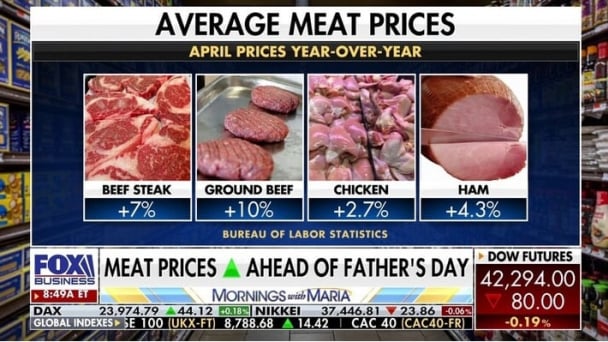June 14, 2025 | 11:43 GMT +7
June 14, 2025 | 11:43 GMT +7
Hotline: 0913.378.918
June 14, 2025 | 11:43 GMT +7
Hotline: 0913.378.918
Despite a projected 2-million-tonne year-on-year decline in production, Turkey still has large inventories of wheat that it is trying to liquidate, according to a report from the Foreign Agricultural Service (FAS) of the US Department of Agriculture.
With wheat ending stocks reaching a record 5.3 million tonnes at the end of the 2023-24 marketing year, the Turkish government announced in June that it was suspending wheat imports through Oct. 15 to attempt to drawdown the oversupply. But the FAS noted that because of the wide price difference between Turkish and imported wheat ($320/tonne vs. $240/tonne) during the suspension, flour and pasta exporters were reluctant to use local wheat and instead opted to wait for imports to resume.
At the end of the suspension two weeks ago, the Turkish Grain Board (TMO) notified millers that they could import 15% of their wheat needs in exchange for purchasing 85% of their wheat from the TMO.
“According to market sources, this practice will likely continue through the end of 2024,” the FAS said. “TMO is reportedly selling its stocks below domestic wheat prices and in line with international prices at around $235 to $245 per tonne. Selling at a discount appears to be a departure from the government’s commitment earlier this year to stop selling below cost in order to conserve government resources. However, it now appears that the government has realized that it must sell its wheat stocks at a discount if it ever hopes to melt down its massive inventories.”
The FAS said Turkey is having difficulties exporting wheat “because of the restrictions on imports, expected difficulties recovering lost market share, and as slowdown in Iraq’s demand for Turkish flour.” The agency sees exports declining to 7 million tonnes this year, a 30% decline from the 2023-24 total.
Despite these factors, the FAS forecasts a 43% year-on-year decline in ending stocks for 2024-25 to 3 million tonnes.
Turkish wheat production is projected to decline by 11% from last year’s record output to 18.7 million tonnes “due to dry weather conditions during the spring growing season,” the FAS said.
(WG)

(VAN) Noting risks, report examines impacts of avian influenza, changing trade patterns since 2022, fish fraud, and shipping industry’s net-zero goals.

(VAN) Mr. Tran Quang Bao, General Director of the Forestry and Forest Protection Department, met and worked with the International Wood Products Association to promote cooperation in the field of timber trade.

(VAN) China's outbound shipments of rare earths in May jumped 23% on the month to their highest in a year, though Beijing's export curbs on some of the critical minerals halted some overseas sales.

(VAN) To sustain capital flow, administrative reform alone is not enough; what farmers truly need is an ecosystem where both government and businesses grow together in support.

(VAN) Vietnam and the United States are proactively working together, each in their own way, to ensure that every container of agricultural goods carries not just products, but also long-term trust and value.

(VAN) Stores have started selling rice from the government’s stockpile to feed demand for the staple.

(VAN) Omaha Steaks CEO says rebuilding cattle herds will take about a year to ease price pressures.